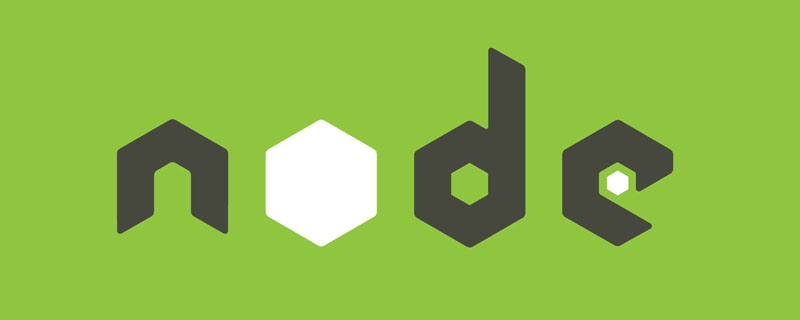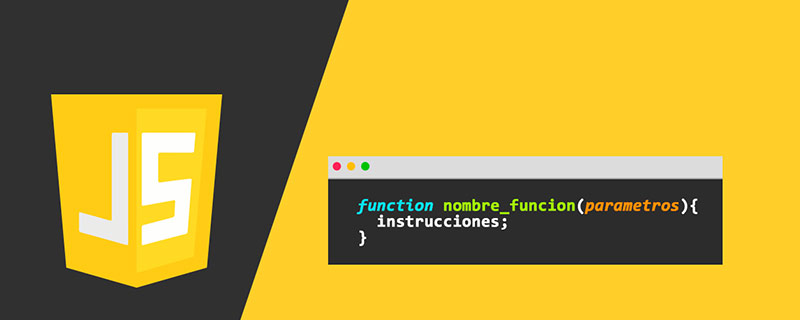How to use configuration files to manage multiple Node.js processes? This article will introduce to you how PM2 uses configuration files to manage multiple Node projects. I hope it will be helpful to you!

1. Introduction to the problem
There are multiple Node.js processes When they need to be managed together, and the parameters required by each are different at the same time, creating a configuration file for management is the best solution.
2. Solution
1. Generate the basic version configuration file
pm2 init simple : Can generate a basic version of the configuration file: ecosystem.config.js
// ecosystem.config.js
module.exports = {
apps: [{
name: "app1",
script: "./app.js"
}]
}2. Generate a complex version of the configuration file
pm2 init is equivalent to pm2 ecosystem , you can generate a configuration file with the deploy attribute: economy.config.js
module.exports = {
apps: [{
script: 'index.js',
watch: '.'
}, {
script: './service-worker/',
watch: ['./service-worker']
}],
deploy: {
production: {
user: 'SSH_USERNAME',
host: 'SSH_HOSTMACHINE',
ref: 'origin/master',
repo: 'GIT_REPOSITORY',
path: 'DESTINATION_PATH',
'pre-deploy-local': '',
'post-deploy': 'npm install && pm2 reload ecosystem.config.js --env production',
'pre-setup': ''
}
}
};This version of the configuration is suitable for remote configuration servers, see the example here!
https://learn-anything.cn/pm2-nodejs-deploy
3. Use the configuration file
to start and stop , restart, reload, delete all projects in the configuration file
pm2 start ecosystem.config.js pm2 stop ecosystem.config.js pm2 restart ecosystem.config.js pm2 reload ecosystem.config.js pm2 delete ecosystem.config.js
Start the specified application
pm2 start ecosystem.config.js --only api-app pm2 start ecosystem.config.js --only "api-app,worker-app"
For more node-related knowledge, please visit: nodejs tutorial! !
The above is the detailed content of How to use configuration files to manage multiple Node.js processes. For more information, please follow other related articles on the PHP Chinese website!
 Vercel是什么?怎么部署Node服务?May 07, 2022 pm 09:34 PM
Vercel是什么?怎么部署Node服务?May 07, 2022 pm 09:34 PMVercel是什么?本篇文章带大家了解一下Vercel,并介绍一下在Vercel中部署 Node 服务的方法,希望对大家有所帮助!
 node.js gm是什么Jul 12, 2022 pm 06:28 PM
node.js gm是什么Jul 12, 2022 pm 06:28 PMgm是基于node.js的图片处理插件,它封装了图片处理工具GraphicsMagick(GM)和ImageMagick(IM),可使用spawn的方式调用。gm插件不是node默认安装的,需执行“npm install gm -S”进行安装才可使用。
 怎么使用pkg将Node.js项目打包为可执行文件?Jul 26, 2022 pm 07:33 PM
怎么使用pkg将Node.js项目打包为可执行文件?Jul 26, 2022 pm 07:33 PM如何用pkg打包nodejs可执行文件?下面本篇文章给大家介绍一下使用pkg将Node.js项目打包为可执行文件的方法,希望对大家有所帮助!
 一文解析package.json和package-lock.jsonSep 01, 2022 pm 08:02 PM
一文解析package.json和package-lock.jsonSep 01, 2022 pm 08:02 PM本篇文章带大家详解package.json和package-lock.json文件,希望对大家有所帮助!
 分享一个Nodejs web框架:FastifyAug 04, 2022 pm 09:23 PM
分享一个Nodejs web框架:FastifyAug 04, 2022 pm 09:23 PM本篇文章给大家分享一个Nodejs web框架:Fastify,简单介绍一下Fastify支持的特性、Fastify支持的插件以及Fastify的使用方法,希望对大家有所帮助!
 node爬取数据实例:聊聊怎么抓取小说章节May 02, 2022 am 10:00 AM
node爬取数据实例:聊聊怎么抓取小说章节May 02, 2022 am 10:00 AMnode怎么爬取数据?下面本篇文章给大家分享一个node爬虫实例,聊聊利用node抓取小说章节的方法,希望对大家有所帮助!
 手把手带你使用Node.js和adb开发一个手机备份小工具Apr 14, 2022 pm 09:06 PM
手把手带你使用Node.js和adb开发一个手机备份小工具Apr 14, 2022 pm 09:06 PM本篇文章给大家分享一个Node实战,介绍一下使用Node.js和adb怎么开发一个手机备份小工具,希望对大家有所帮助!
 图文详解node.js如何构建web服务器Aug 08, 2022 am 10:27 AM
图文详解node.js如何构建web服务器Aug 08, 2022 am 10:27 AM先介绍node.js的安装,再介绍使用node.js构建一个简单的web服务器,最后通过一个简单的示例,演示网页与服务器之间的数据交互的实现。


Hot AI Tools

Undresser.AI Undress
AI-powered app for creating realistic nude photos

AI Clothes Remover
Online AI tool for removing clothes from photos.

Undress AI Tool
Undress images for free

Clothoff.io
AI clothes remover

AI Hentai Generator
Generate AI Hentai for free.

Hot Article

Hot Tools

Safe Exam Browser
Safe Exam Browser is a secure browser environment for taking online exams securely. This software turns any computer into a secure workstation. It controls access to any utility and prevents students from using unauthorized resources.

ZendStudio 13.5.1 Mac
Powerful PHP integrated development environment

SublimeText3 English version
Recommended: Win version, supports code prompts!

Zend Studio 13.0.1
Powerful PHP integrated development environment

Dreamweaver CS6
Visual web development tools







